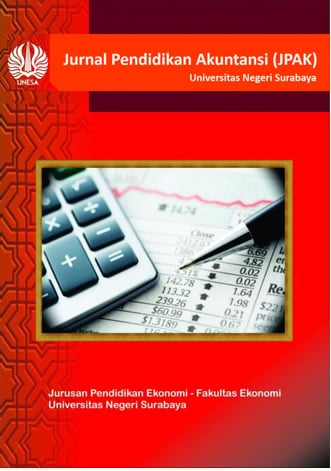Pengaruh Literasi Finansial, Inklusi Keuangan, Teman Sebaya, dan Kontrol Diri terhadap Perilaku Menabung Mahasiswa
DOI:
https://doi.org/10.26740/jpak.v10n3.p217-231Keywords:
Financial literacy; financial inclusion; peers; self control; saving behaviorAbstract
Savings can be said to be a savior when economic conditions are not good. In order to have sufficient savings, it is necessary to have good saving behavior. This study was conducted with the intention of knowing the effect of financial literacy, financial inclusion, peers, and self-control simultaneously and partially on the saving behavior of 2018 Accounting Education undergraduate students at the State University of Surabaya. This type of research is quantitative with data collection techniques using questionnaires. The data analysis technique used multiple linear regression. The results of this study are: (1) financial literacy, peers, and self-control each do not have an impact on student saving behavior, (2) financial inclusion partially has a positive impact on student saving behavior, and (3) financial literacy, financial inclusion, peers, and self-control together have an impact of 58.2% on student saving behavior.
Downloads
Downloads
Published
How to Cite
Issue
Section
License
Authors who publish with this journal agree to the following terms:
- Authors retain copyright and grant the journal right of first publication with the work simultaneously licensed under a Creative Commons Attribution License that allows others to share the work with an acknowledgement of the work's authorship and initial publication in this journal.
- Authors are able to enter into separate, additional contractual arrangements for the non-exclusive distribution of the journal's published version of the work (e.g., post it to an institutional repository or publish it in a book), with an acknowledgement of its initial publication in this journal.
- Authors are permitted and encouraged to post their work online (e.g., in institutional repositories or on their website) prior to and during the submission process, as it can lead to productive exchanges, as well as earlier and greater citation of published work (See The Effect of Open Access).

Jurnal Pendidikan Akuntansi (JPAK) is licensed under a Creative Commons Attribution-NonCommercial 4.0 International License.
 Abstract views: 2083
,
Abstract views: 2083
, PDF Downloads: 2039
PDF Downloads: 2039



